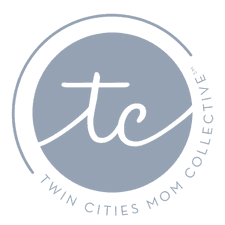August is National Breastfeeding Month. A new mom’s experience with breastfeeding is as individual as their pregnancy and birthing story. Clinic Sofia OB/GYN, Dr. Erin Stevens, shares her unique perspective on breastfeeding and what she wishes she knew before embarking on her postpartum journey.
 While breastfeeding was a goal I had for myself and my baby, I know that breast/chestfeeding is not the optimal feeding strategy for all parents and babies. Each parent must weigh available information and make the best decision for their family. If it’s your goal and it works out, that’s wonderful! If it’s something you want to do but doesn’t quite go as you’d imagined, that’s okay, too! If it’s not part of your plan, don’t let parent-shaming culture bring you down.
While breastfeeding was a goal I had for myself and my baby, I know that breast/chestfeeding is not the optimal feeding strategy for all parents and babies. Each parent must weigh available information and make the best decision for their family. If it’s your goal and it works out, that’s wonderful! If it’s something you want to do but doesn’t quite go as you’d imagined, that’s okay, too! If it’s not part of your plan, don’t let parent-shaming culture bring you down.
Breastfeeding has been a difficult journey for me. I struggled with fertility leading up to my pregnancy, and the jury’s out on whether that or breastfeeding has been more of a challenge. I was lucky that pregnancy and my daughter’s birth were healthy and – all things considered – fairly easy for me, but I really could have done without these flanking issues.
I took a newborn class that had a section on nursing, purchased a pump in advance, watched videos showing appropriate latch, had previously done research to write a chapter in my own book about the postpartum period, and am an OB/GYN who theoretically had some directed education on lactation. Even with all of this education and support, I still wasn’t fully prepared when the time came to breastfeed and don’t think anyone truly ever can be.
Here are 6 things I wish I had fully understood about breastfeeding:
-
It’s not free.
Our *time* has value, and the time you spend with a baby or a pump on the nips is far from nothing. Those who say that nursing is “free” are telling you your time isn’t worth anything.
I also never thought about all the possible add-on costs: nursing bras, nursing clothes, nipple ointment, nipple shields, nipple pads, pumps, pump parts, storage containers, lactation supplements, lactation consultant fees, a small chest freezer to store milk after it starts taking up the normal freezer…it adds up (and up and up). I don’t even want to think about the amount of money I’ve hemorrhaged into making this process work, and I definitely didn’t think about it as I made it rain reordering my latest milk-making magic this very morning. Anyone who tries to convince you to breast/chestfeed by saying it’s free is missing out on the importance and value of your time.
Aside from the simple monetary costs of these items, it can be a big struggle not to have them on hand. Pumping with a traditional pump without a pumping bra is absolutely terrible, and I can’t believe I ever did it.
2. It’s like a job without weekends or vacation.
When you take a closer look, you can see how breastfeeding can quickly turn into a full-time job.
This brand-new baby needs to eat 8-12 times in a 24-hour period and each feeding session can take 10 to 45 minutes; when the baby is done eating, they might just want to suckle for soothing for an extended period and holy cow the whole day just passed and I feel like I spent all of it with the baby latched onto me. That’s fine, that’s cool, the baby’s getting older, we’re spacing things out, but even if the baby can somehow go all night and then some without any milk or a support person can feed a bottle or two of pumped milk for me, I can’t sleep in because I need to empty these milk sacks before they explode or develop clogs or become infected. Totally fine, I can adjust to that, sleeping in is a distant memory of luxury from the days of yore, and at least I’m going to go enjoy a day out with friends sans baby, but oh yeah, I need to bring my pump and multiple sets of parts and jars to store the milk and a small cooler to make sure the milk doesn’t go bad and just figure out when and how I’m going to pump in this fun-filled day of fun that is definitely not stressing me out as I think about all that pump stuff. Everything’s fine, no worries, we just have to do this every day for what feels like forever.
3. The physical part is the easiest.
I can deal with clogged ducts, engorgement, milk blisters, sore nipples, my baby seemingly trying to tear my nipples off, my baby clawing at my boob while she nurses, and the permanently nipping-out look. The first night we were home from the hospital, I had a meltdown at 4:30 a.m. because Baby Girl had been cluster feeding and wouldn’t detach from my breasts at all for four hours straight while I was barely functioning on a one-hour nap from earlier in the night. I felt like a complete failure as a mother on just my baby’s third day of life when I was told she’d lost slightly too much weight at the pediatrician’s office. I agonized over this, trying to keep her awake during sleepy feeds so I could try to make sure she was getting enough milk. I overstressed myself with entirely too much time pumping for too many weeks. The physical part isn’t easy, but the mental and emotional toll of breast/chestfeeding is huge.
4. We need better support.
OB/GYNs and pediatricians need much more education on lactation. I knew that my “training” was subpar on the subject, but there was so much I didn’t realize I didn’t know. Simple example: I couldn’t even fathom the complexities of pumping. A patient once asked me if I thought wearable pumps (in-bra pumps without wires or external devices) were worth it, and I said no; now I don’t think I would have possibly made it nearly this long without mine. We are the first line for many lactation questions, so we should be better prepared to answer them.
Lactation consultants should be more widely available and covered by all insurance plans.
Peer support through organizations like La Leche League should be highly encouraged and funded through steady financial streams.
Parental leave needs to be significantly improved. The three months of maternity leave that I treasured is a good amount in the United States but is abysmal when compared to leave in other countries.
Parents who go to work need guaranteed pumping breaks or on-site childcare for easy access to their babies.
Above all, we need to acknowledge that this can be incredibly hard and that it’s okay to need and ask for help.
5. The hunger and thirst are intense.
By 9:30 a.m. most days (the time of my first pumping break at work), I’ve had a glass of water with a lactation supplement mixed in, a Yeti tumbler of water, a Gatorade (blue, because that’s the color everyone *swears* increases milk supply), and a large cup of coffee. I eat everything constantly. If I don’t have a beverage and a snack easily accessible at all times, I am not happy.
6. It is so rewarding and every bit of it is worth celebrating.
Patients are often sad or disappointed when they tell me they are supplementing their milk with formula, exclusively pumping, or were “just” able to breast/chestfeed for x number of weeks or months. If you’ve made a goal to give your baby your own human milk and fall into any of those categories, congrats – you did it!
There is no rule that nursing your baby means you have to only nurse your baby. Formula is not evil. Feeding pumped milk isn’t a failure. The weeks or months spent breast/chestfeeding were beneficial to you and your baby. Do you know how long a month is? If you did anything else all dang day every day for a month – exercising, working on a cool hobby, studying/learning – you’d be proud as hell! Give yourself that same grace and admiration for this. As I mentioned, breast/chestfeeding is potentially expensive, time-consuming, emotionally and mentally draining, not always supported well, and leaves you starving and dehydrated, among other challenges. If it’s something you want to do and you’re able to do it at all, it’s a great accomplishment.
When I hit six months of breastfeeding (which included a stint of formula supplementation and way more pumping than I ever imagined), I made a preserved breastmilk necklace to commemorate the milestone, something I would have thought was totally weird before but means so much to me now. I love this special bond and closeness I have with my baby. I love that I’m able to provide her with the nutrition she needs. I love knowing that if she’s sick, my body works to help her get better through my milk. I love the happy excitement in her smile and sounds when she’s about to breastfeed.
Even though we struggled and you can find me swearing at my pump at some point every day, I’m happy to have followed through on my goal of breastfeeding and would absolutely do it again. That necklace is a symbol to me of the beauty in providing my baby girl every possible ounce of my love and support, come what may, and I wear it every day. Every time I worry my supply may be dropping and there may be an end coming, I try to remember to be happy with how far we’ve already come.
To all those parents out there struggling with nursing, I see you, I’m cheering for you, and I’m raising a blue Gatorade to you.



